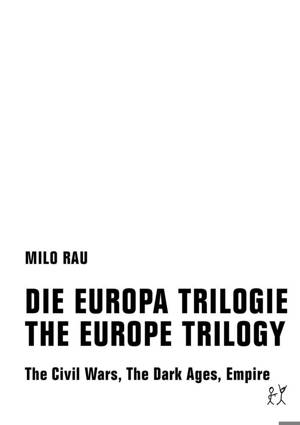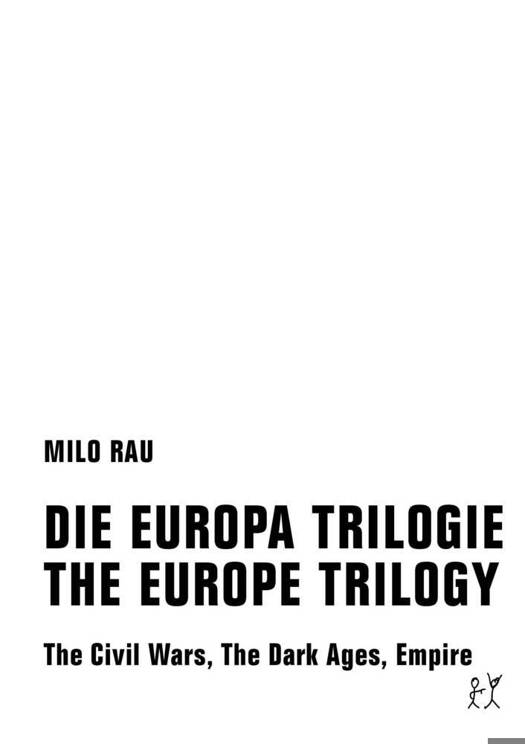
- Afhalen na 1 uur in een winkel met voorraad
- Gratis thuislevering in België vanaf € 30
- Ruim aanbod met 7 miljoen producten
- Afhalen na 1 uur in een winkel met voorraad
- Gratis thuislevering in België vanaf € 30
- Ruim aanbod met 7 miljoen producten
Zoeken
Omschrijving
Touring through Europe since the 2014 premiere of its first part »The Civil Wars«, Milo Rau's »Europe Trilogy« takes up an exceptional position within its polymorphic and often scandal-embraced work: with radical simplicity, 13 actors and actresses from 11 different European countries narrate stories from their own lives and works - among which Manfred Zapatka, Johan Leysen and Maia Morgenstern. Throughout three parts and six hours of pure narrative thus emerges the »political psychoanalysis« (La Libération) of a frequently torn continent, but also a deep meditation about theatre itself. While »The Civil Wars« holds at its core the ideological homelessness in Western Europe from the end of WWII to postmodern jihadism, and while »The Dark Ages« focuses on the wars and evictions in Ex-Yugoslavia, Russia and Germany, in »Empire« actors from Greece, Syria and Rumania narrate about artistic and real tragedy, about torture, escape, grief, death and rebirth. »A work of infinite truth«, as the Time Out Spain magazine wrote, placing »The Civil Wars« at the top of its 2015 Best-list. Alongside the scripts of the »Europe Trilogy«, the volume is enriched by talks that illustrate the background of this polyphonic portrait of Europe, in which »the universal sinks into timelessness« (Spiegel Online).
Specificaties
Betrokkenen
- Auteur(s):
- Uitgeverij:
Inhoud
- Aantal bladzijden:
- 381
- Taal:
- Engels, Duits
Eigenschappen
- Productcode (EAN):
- 9783957322173
- Verschijningsdatum:
- 2/09/2016
- Uitvoering:
- Paperback
- Afmetingen:
- 120 mm x 31 mm
- Gewicht:
- 372 g

Alleen bij Standaard Boekhandel
+ 43 punten op je klantenkaart van Standaard Boekhandel
Beoordelingen
We publiceren alleen reviews die voldoen aan de voorwaarden voor reviews. Bekijk onze voorwaarden voor reviews.











